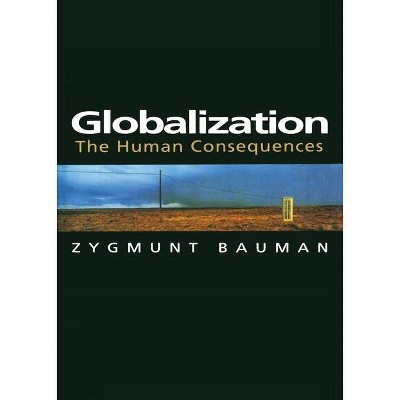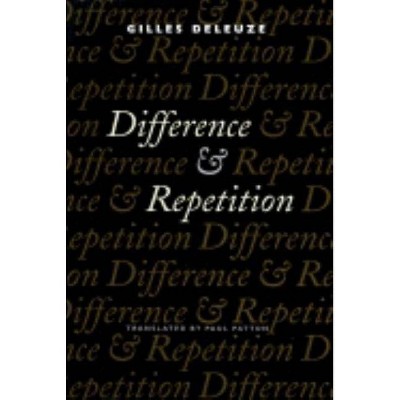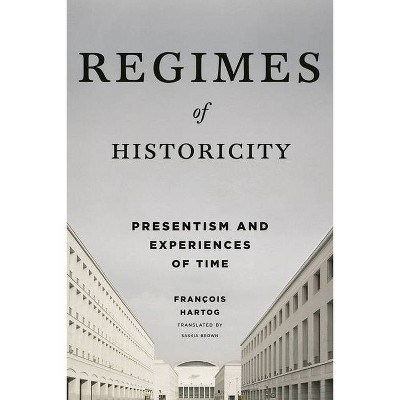Globalization - (European Perspectives: A Social Thought and Cultural Criticism) by Zygmunt Bauman (Paperback)

Similar Products
Products of same category from the store
AllProduct info
<p/><br></br><p><b> About the Book </b></p></br></br><p>Globalization may spur the movement of people, capital, and information across the globe, but if people themselves are not in control of these processes, who benefits? Human affairs now take place on a global scale, but we can only watch as boundaries, institutions, and loyalties shift rapidly. These new uncertainties place everyone at a disadvantage as jobs disappear from traditional arenas, time-honored national industries collapse, and new hierarchies arise in which everyone is expendable and replaceable. Drawing on the works of philosophers, social historians, architects, and theoreticians such as Michel Foucault, Claude Levi-Strauss, Alfred J. Dunlap, and Le Corbusier, Zygmunt Bauman takes a closer look at globalization's positive and negative effects. From the creation of absentee landlords to prison architecture designed for the criminalization of the underclass, Bauman ultimately finds more division than unity in the rise of a more homogenous, disenfranchised world.</p><p/><br></br><p><b> Book Synopsis </b></p></br></br><p>Bauman shows in this detailed history of globalization that while human affairs now take place on a global scale, we are not able to direct events; we can only watch as boundaries, institutions, and loyalties shift in rapid and unpredictable ways. From the way the global economy creates a class of absentee landlords to current prison designs for the criminalized underclass, Bauman dissects globalization in all its manifestations: its effects on the economy, politics, social structures, and even our perceptions of time and space.</p><p>Drawing on the works of philosophers, social historians, architects, and theoreticians such as Michel Foucault, Claude Lévi-Strauss, Alfred J. Dunlap, and Le Corbusier, <i>Globalization</i> presents a historical overview of the methods employed to create and define human spaces and institutions, from rural villages to sprawling urban centers.</p><p/><br></br><p><b> Review Quotes </b></p></br></br><br>A powerful antidote to bland political-cultural pronouncements of the 'there is no alternative' variety.--British Journal of Sociology<br><br>A valuable introduction to the question of globalization, and, more importantly, sets a new agenda for sociological theory at the beginning of the twenty-first century.--Acta Sociologica<br><br>Brooding brilliance... Bauman subtly lays out [globalization's] 'human consequences.'--Independent<br><br>Utilizing the works of philosophers, historians, architects, and theoreticians, British sociologist Zygmunt Bauman takes a hard look at the history, ethics, and economic and social consequences of globalization, and finds that it will inevitably divide more than it unites.--Globe and Mail<br><br>Anyone prepared to move beyond the seductiveness of libertarian ideology... will find <i>Globalization</i> as eloquent a summation of the problem as they are likely to encounter anywhere.--Alan Ehrenhalt "Wilson Quarterly "<br><p/><br></br><p><b> About the Author </b></p></br></br>Zygmunt Bauman is emeritus professor of sociology at the University of Leeds and the University of Warsaw. He is the author or editor of numerous books, including <i>Liquid Times: Living in an Age of Uncertainty</i>, <i>Consuming Life</i>, <i>Does Ethics Have a Chance in a World of Consumers?</i> and <i>The Art of Life</i>.
Price History
Cheapest price in the interval: 26.49 on October 22, 2021
Most expensive price in the interval: 26.49 on December 20, 2021
Price Archive shows prices from various stores, lets you see history and find the cheapest. There is no actual sale on the website. For all support, inquiry and suggestion messages communication@pricearchive.us




















